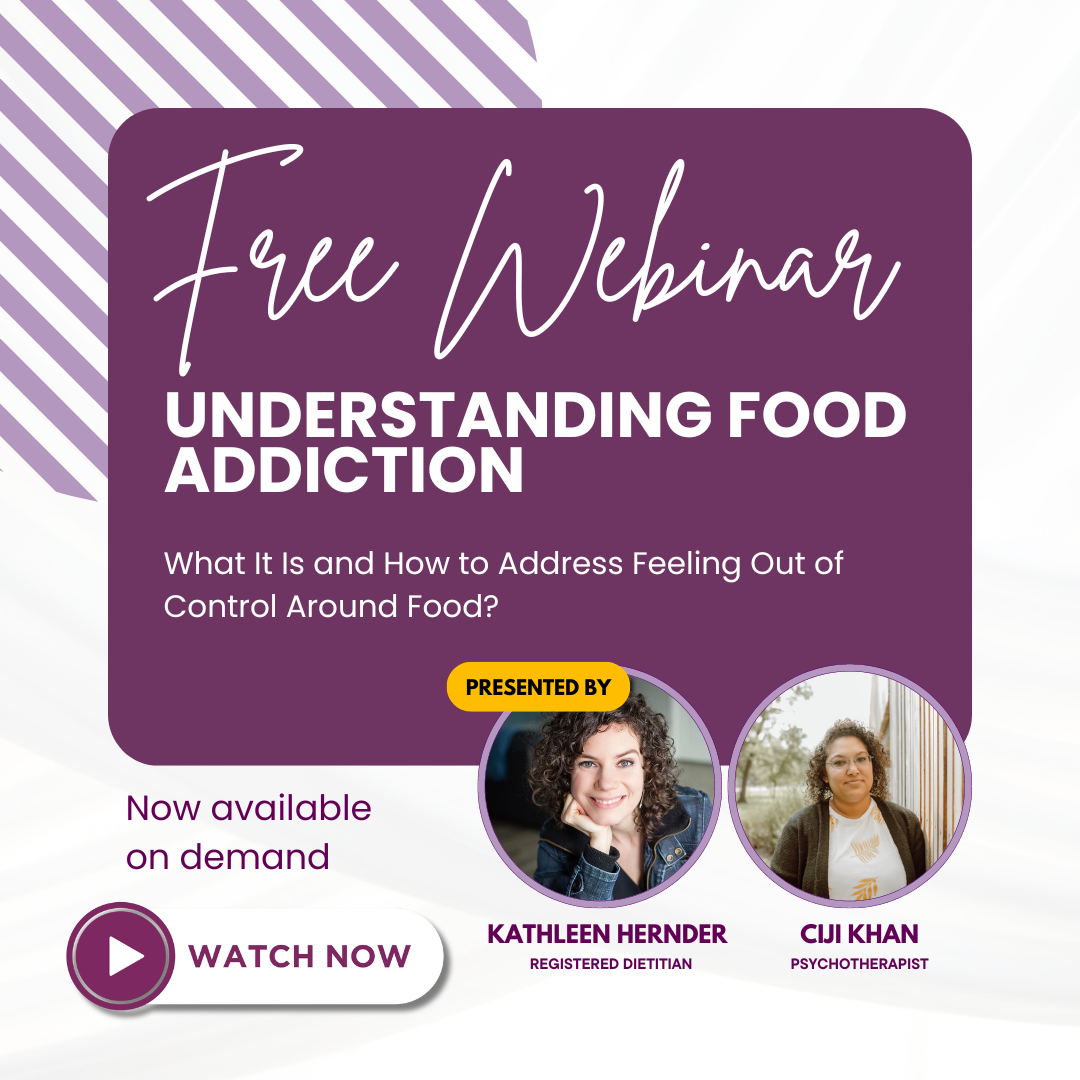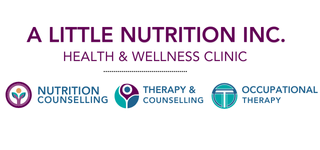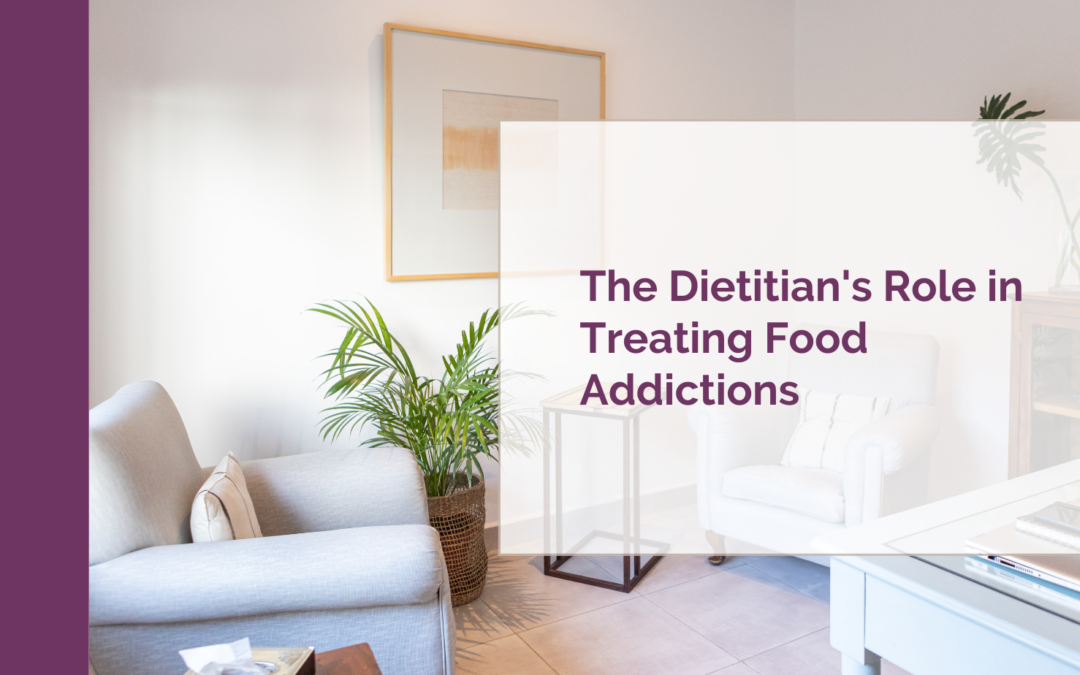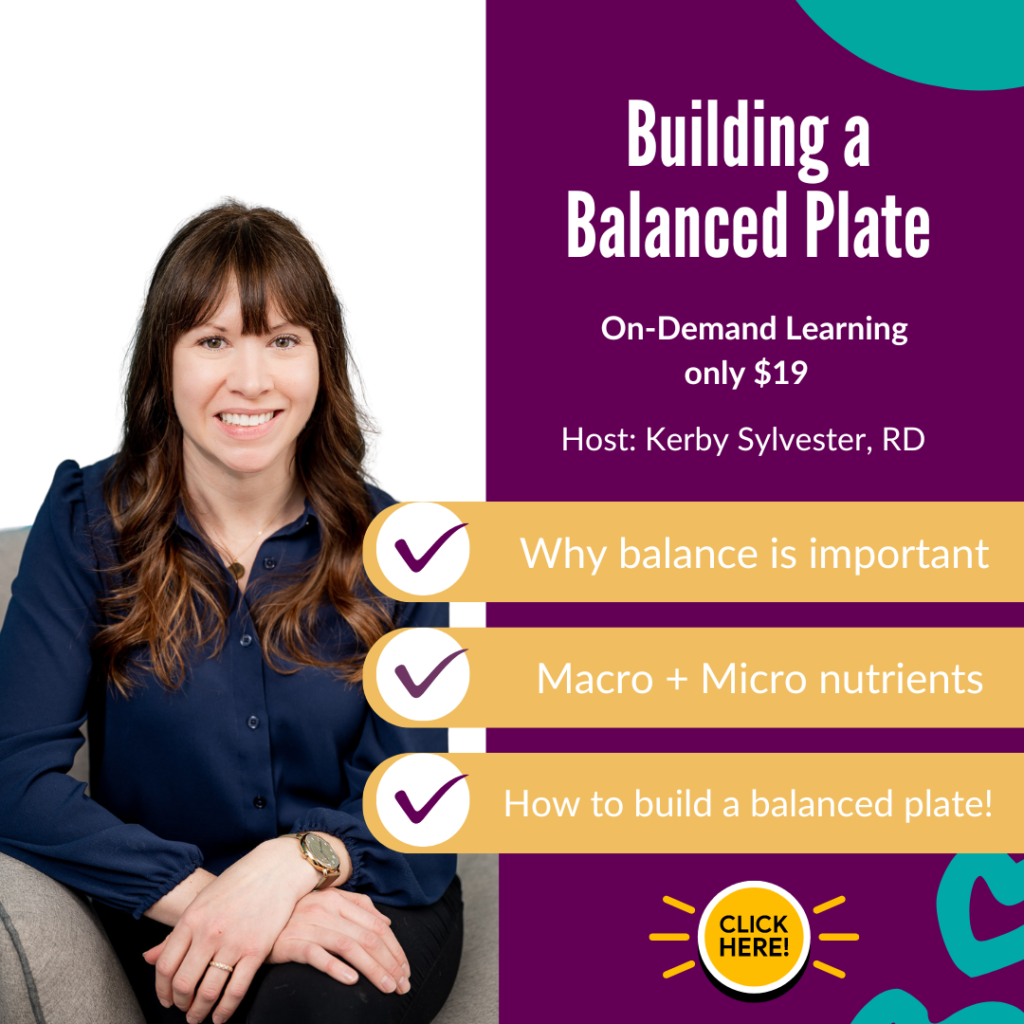Food addiction is a struggle many people face, and finding the right approach to treatment can be challenging. One effective solution is working with a dietitian. Let’s explore how dietitians play a crucial role in treating food addictions.
Understanding Food Addiction
Feeling addicted to food often stems from a complex interplay of psychological, physical, and social factors. It’s not just about willpower; it’s about addressing the underlying issues that drive your cravings and obsessions with food.
LEARN MORE: What is food addiction?
The Dietitian’s Role in Treating Food Addictions
Ensuring Adequate Nutrition
One of dietitians’ first steps in treating food addictions is ensuring that you’re eating enough. Constant hunger and obsessive thoughts about food can result from under-eating, driven by societal standards and diet culture. When your body lacks adequate nourishment, it reacts with intense cravings, making you feel addicted to food. A dietitian can help you establish a balanced, nourishing eating plan that meets your body’s needs and eliminates any physical drivers for food addiction.
Addressing Emotional Eating
Emotional eating is another common factor in food addictions. Many of us reach for food when we’re stressed, anxious, bored, or just dealing with emotions. Dietitians work with you to identify these triggers and provide practical strategies for managing them without turning to food.
Developing Healthy Habits
One of the critical goals of treating food addictions is establishing healthy habits and routines around eating. Dietitians can help you create structure and consistency in your meals and snacks, avoiding chaotic or disordered eating patterns that can fuel food addiction.
Providing Accountability and Support
Changing your relationship with food is challenging, and having a supportive professional by your side can make all the difference. Dietitians provide accountability and support throughout your journey of treating food addictions, offering guidance, motivation, and encouragement as you navigate toward a healthier relationship with food.
Personalized Approach
Each person’s relationship with food is unique. Dietitians take the time to explore your current eating patterns and understand your specific experiences with food. This personalized approach allows them to identify the factors driving your cravings and feelings of addiction.
Developing a Nourishing and Sustainable Plan
You’ll create an eating plan with your dietitian that supports your well-being and honors your body’s needs. This plan is not about restrictive dieting or avoiding certain foods. Instead, it’s about finding a balance that reduces food cravings and “food noise” without making you feel deprived.
Shifting Mindset
A significant goal in treating food addiction is helping you shift from a mindset of fear and restriction to one of balance and enjoyment. Dietitians work with you to foster a positive relationship with food, moving away from the cycle of feeling addicted.
Breaking the Cycle
By meeting your nutritional needs and supporting a healthier relationship with food, dietitians help you break free from the cycle of food addiction. This approach leads to a more fulfilling way of eating and overall improvement in your quality of life.
Benefits of Working with a Dietitian
- Expert Guidance: Dietitians offer professional advice tailored to your specific needs.
- Support and Accountability: Regular check-ins help you stay on track.
- Holistic Approach: Dietitians consider all aspects of your health, not just your diet.
- Long-term Success: The strategies developed with a dietitian are sustainable and designed for long-term success.
Therapy
In addition to working with a dietitian, therapy can also play a crucial role in treating food addictions. Therapists can help you uncover the underlying emotional and psychological factors driving your addictive behaviors with food.
Through various therapeutic approaches like cognitive-behavioral therapy (CBT), you can learn to identify and change negative thought patterns, develop healthier coping mechanisms, and build a more positive self-image.
Coupled with nutritional guidance, therapy provides a well-rounded support system to tackle food addiction from all angles, making your journey to recovery that much more effective and rewarding.
If you think you might have a food addiction, seeking the help of a dietitian can be a game-changer. Dietitians provide the necessary tools and support to develop a healthier relationship with food. Ready to take the first step?
Book a consultation with one of our expert dietitians today and start your journey toward a balanced and enjoyable way of eating!
Book a 15-minute consult with one of our dietitians or therapists here:
https://alittlenutrition.janeapp.com/
The journey to overcoming food addiction may not be easy, but it is possible. With the proper support and tools, you can break free from the cycle of harmful behaviors and develop a healthier relationship with food. Remember, seeking help is a sign of strength, not weakness. Don’t let food addiction control your life any longer—take that first step towards lasting change today! So don’t hesitate to reach out and seek the help you need for a happy and healthy future. You deserve it! No matter where you are in your journey towards healing, know that there is hope and support available for you. Never give up on yourself because recovery is possible, and you are worth it! Keep moving

Free Webinar [Replay]
Understanding Food Addiction
In this webinar, we’ll dive deep into the complex relationship between food and the feeling of being out of control. You’ll gain insights into:
- Why Food Can Feel Addictive: Exploring the reasons behind intense food cravings and the sensation of being “addicted” to food.
- Food Addiction or Something Else?
- Understanding the difference between food addiction and other underlying issues that may contribute to feeling out of control.
- Our Approach to Support
- Discovering our philosophy on food cravings and “food noise.” Learn how our methods can help you regain control without dieting or restrictive practices.





